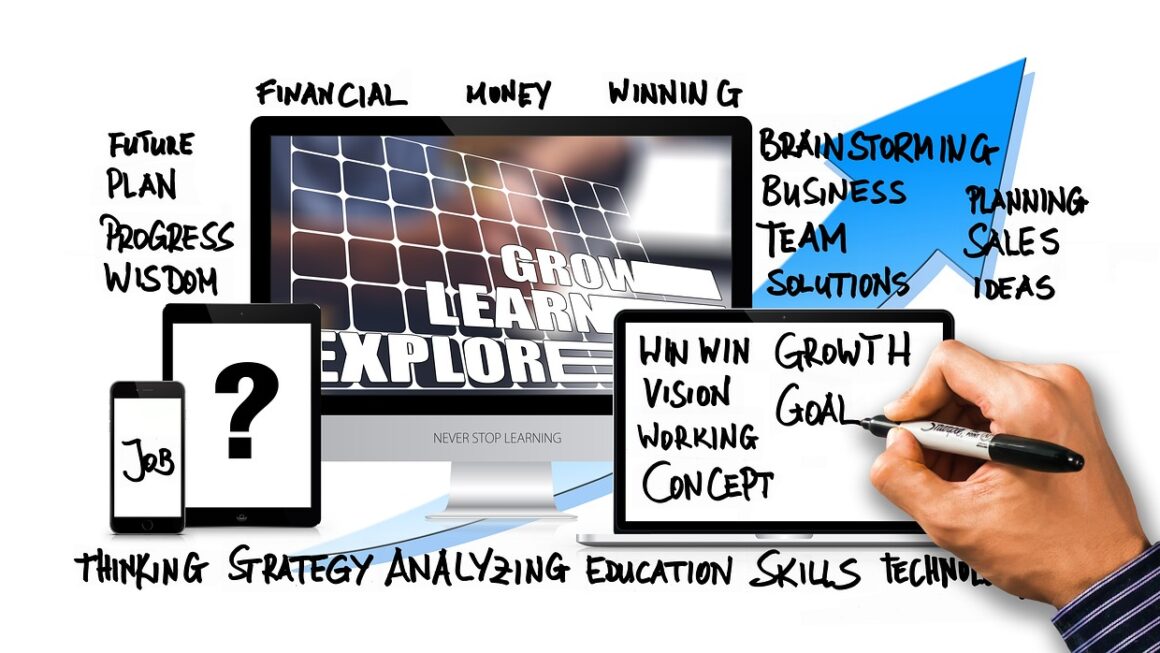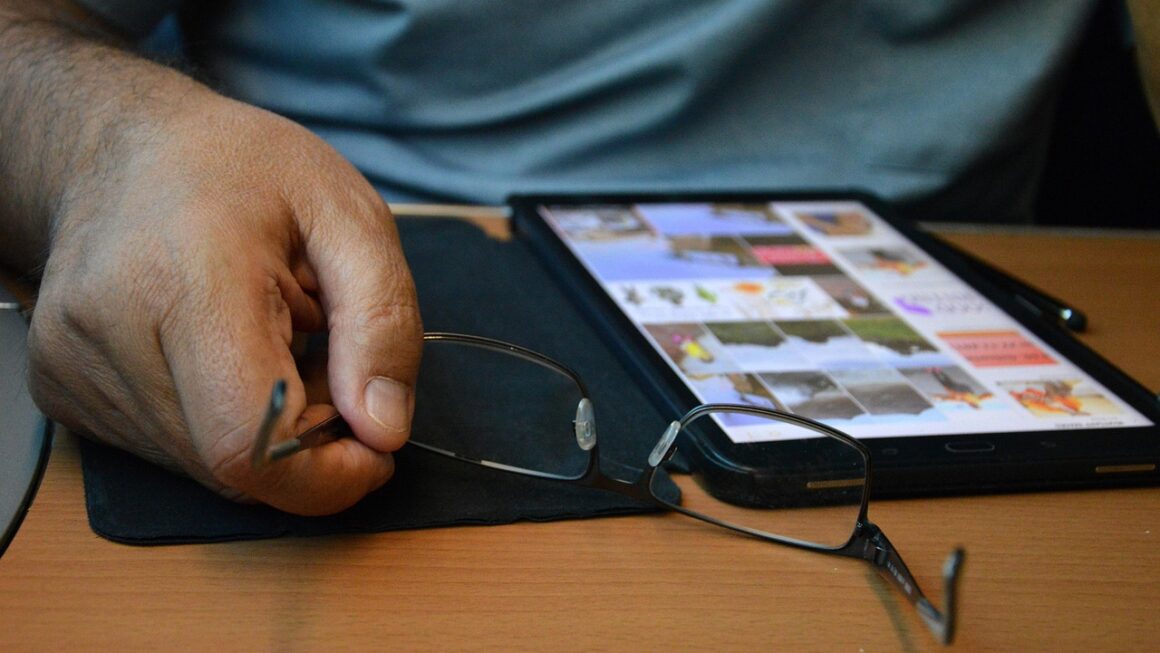Living in the digital age presents us with unprecedented opportunities to shape our lives in ways that were unimaginable just a few decades ago. From remote work setups that grant geographical freedom to accessing a wealth of information at our fingertips, the digital lifestyle offers a unique blend of convenience, flexibility, and connection. But navigating this digital landscape effectively requires understanding its nuances and proactively crafting a lifestyle that aligns with your values and goals.
Embracing the Digital Nomad Lifestyle
The Appeal of Location Independence
The digital nomad lifestyle, a subset of the broader digital lifestyle, revolves around the freedom to work from anywhere with an internet connection. This appeals to those seeking adventure, cultural immersion, and a break from the traditional 9-to-5 routine.
- Benefits:
Increased autonomy and control over your schedule.
Opportunity to explore new cultures and environments.
Potential for a more fulfilling work-life balance.
Access to a wider range of job opportunities.
- Example: A freelance writer based in Bali, managing their projects while enjoying the island’s beaches and vibrant culture. A software developer working remotely from a co-living space in Medellin, collaborating with a global team while immersing themselves in the city’s tech scene.
Overcoming Challenges of Remote Work
While appealing, a location-independent career comes with its own set of challenges.
- Challenges:
Maintaining productivity and focus in distracting environments.
Building and maintaining strong professional relationships remotely.
Dealing with time zone differences and communication barriers.
Ensuring reliable internet access and a suitable workspace.
Managing finances and taxes across different countries.
- Tips:
Establish a dedicated workspace, even in a shared environment.
Use productivity tools like time trackers and task management apps.
Schedule regular video calls to stay connected with colleagues and clients.
Invest in a reliable portable Wi-Fi hotspot.
Consult with a tax professional specializing in international income.
Mastering Digital Communication and Collaboration
Effective Online Communication Strategies
Clear and concise communication is crucial in a digital environment. Understanding how to communicate effectively across various platforms is essential.
- Email Etiquette: Use clear subject lines, proofread carefully, and be mindful of tone.
- Video Conferencing: Ensure a professional background, test your audio and video beforehand, and actively participate in the conversation.
- Instant Messaging: Maintain a professional tone and use appropriate language, even in informal channels.
- Collaboration Tools: Familiarize yourself with project management software like Asana or Trello, and communication platforms like Slack or Microsoft Teams.
Building and Maintaining Online Relationships
In the digital world, relationships are often built and maintained online.
- Networking: Participate in online communities, attend virtual events, and actively engage with others in your field.
- Social Media: Use platforms like LinkedIn to connect with professionals and build your online presence.
- Personal Branding: Develop a consistent brand across all your online profiles to showcase your expertise and personality.
- Example: Engaging in industry-specific LinkedIn groups, contributing insightful comments on articles, and participating in online workshops.
Leveraging Technology for Personal Growth
Online Learning and Skill Development
The internet provides access to a vast library of resources for personal and professional development.
- Platforms: Utilize platforms like Coursera, Udemy, edX, and Skillshare to learn new skills and expand your knowledge.
- Benefits:
Access to a wide range of courses and subjects.
Flexibility to learn at your own pace and on your own schedule.
Opportunity to earn certifications and credentials.
Affordable alternatives to traditional education.
Digital Tools for Productivity and Well-being
Technology can be a powerful tool for enhancing productivity and promoting well-being.
- Productivity Apps: Use apps like Todoist, Notion, and Evernote to organize tasks, manage projects, and capture ideas.
- Mindfulness and Meditation Apps: Explore apps like Headspace, Calm, and Insight Timer to reduce stress and improve mental well-being.
- Health and Fitness Trackers: Use wearables like Fitbits or Apple Watches to monitor your activity levels and sleep patterns.
- Example: Using a Pomodoro timer app to break down work into focused intervals, taking regular breaks to stretch or meditate, and tracking daily steps to maintain physical activity.
Protecting Your Digital Well-being
Cybersecurity and Privacy
Protecting your personal information and digital assets is crucial in the digital age.
- Strong Passwords: Use strong, unique passwords for all your online accounts.
- Two-Factor Authentication: Enable two-factor authentication whenever possible to add an extra layer of security.
- Phishing Awareness: Be wary of suspicious emails and links, and never share your personal information with untrusted sources.
- VPN Usage: Use a virtual private network (VPN) when connecting to public Wi-Fi networks to encrypt your internet traffic.
- Software Updates: Keep your operating system and software up to date to patch security vulnerabilities.
Managing Digital Overload
The constant influx of information and notifications can lead to digital overload and burnout.
- Set Boundaries: Establish clear boundaries between work and personal time, and avoid checking emails and notifications outside of work hours.
- Digital Detox: Schedule regular digital detox periods to disconnect from technology and reconnect with yourself and your surroundings.
- Mindful Technology Use: Be intentional about how you use technology, and avoid mindless scrolling and social media browsing.
- Notification Management: Customize your notification settings to reduce distractions and prioritize important information.
- Example: Setting a “do not disturb” schedule on your phone, dedicating specific times for checking social media, and spending time outdoors without any electronic devices. Statistics show that excessive social media use can lead to increased anxiety and depression, highlighting the importance of mindful technology usage.
Conclusion
Crafting a fulfilling digital lifestyle is an ongoing process of adaptation and refinement. It involves leveraging technology to enhance productivity and personal growth while being mindful of its potential drawbacks. By embracing location independence, mastering digital communication, protecting your digital well-being, and prioritizing meaningful connections, you can harness the power of the digital world to create a life that is both fulfilling and impactful. Remember that the digital landscape is constantly evolving, so stay curious, stay adaptable, and always prioritize your well-being as you navigate this exciting frontier.




